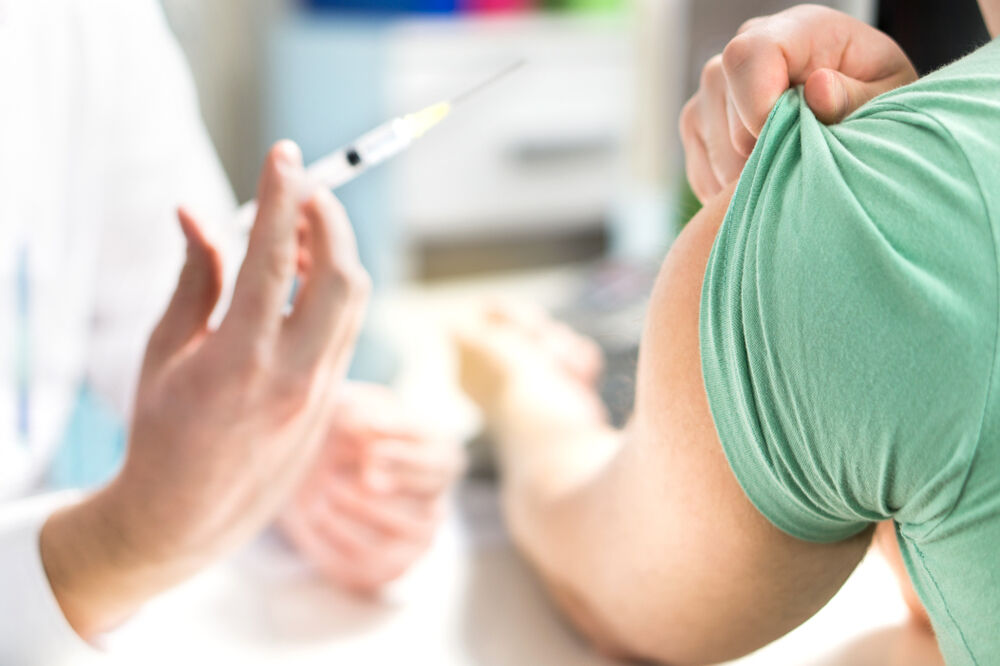Measles and the Measles, Mumps and Rubella (MMR) vaccine
There has been an increase in measles cases across the country including recent cases in Birmingham, Solihull, Coventry and Warwickshire. We have been working closely with UK Health Security Agency (UKHSA) and the NHS to investigate the situation and limit the spread of measles in our local communities.
Most confirmed cases within the West Midlands are in patients who have not received the MMR vaccine, with a number requiring hospitalisation. Over 70% of cases are from deprived areas.
Therefore, we are encouraging people to check that they and their children have had two doses of the MMR vaccine – which is the safest and most effective way of protecting against measles.
About Measles
Measles is a disease which spreads very quickly and easily in communities such as schools and nurseries where people have not had two doses of MMR vaccine. Measles can cause serious illness and can be fatal. People in certain at-risk groups, including babies and small children, pregnant women, and people with weak immunity (immunosuppressed) are at increased risk of complications if they catch measles.
Vaccination with two doses of MMR is the only way to give people maximum protection from this serious disease.
The first signs of measles are:
- High temperature (fever)
- Cold-like symptoms such as runny or blocked nose, coughing, sneezing
- Red, sore, watery eyes
- A non-itchy, blotchy red brown rash. This usually appears a few days after cold-like symptoms (sometimes starts around the ears and the hairline before spreading to the rest of the body). The rash can be harder to see on darker skin tones
- Small white spots appearing inside the cheeks and on the back of lips (for a few days)
Anyone who contracts measles is infectious for four days before any rash appears and for four full days after the start of the rash.
Anyone with measles symptoms is advised to stay at home and phone their GP practice or NHS 111 for advice. After contacting the GP or NHS 111 you should try to rest and stay at home.
If you do need to visit a GP or hospital, you must call ahead to let them know that it could be measles. The staff will make special arrangements to see you and/or your child so that, if it is measles, it won’t be passed on to others.
For anyone that does have measles, they cannot attend work/nursery/school or group activities for 4 days after the start of the rash.
Important information about the MMR vaccine
The MMR vaccine can be given to anyone who missed their MMR vaccinations when they were younger. People can ‘catch-up’ by booking in for MMR vaccination at their GP practice free of charge.
The first dose of MMR vaccination is offered to children soon after their first birthday. The second dose is normally given before your child starts school (age 3 years and 4 months).
- If your child has not received two doses of MMR vaccination as part of their childhood immunisation programme, you should take up the offer of the MMR vaccine for your child
- If you are not sure if your child needs an MMR vaccine, you can check their Red Book (personal child health record) or you can contact your GP to check.
It is never too late to get vaccinated. MMR vaccination is very important when there are cases of measles in the community. This is because any child or adult that has not had at least one dose of MMR and comes into contact with a person with measles may be asked not to attend work/nursery/school or group activities for 21 days after contact with the infected person. This is the time it can take for measles to develop.
Did you know?
- One person with measles can infect 9 out of 10 unvaccinated close contacts
- For people who do not touch any pork products, there is a version of the MMR vaccine which does not use porcine gelatin in its production. This vaccine is safe and effective.
More information about measles and MMR vaccination can be found on the NHS website at www.nhs.uk/conditions/measles/
We have a number of translated copies of this advice. For translated copies into Arabic, Turkish Sorani, Romanian and Urdu, please download from this lnk: Translated versions of this advice
We also have: Dari, Farsi, Hindi, Pashto, Tigrinya, Turkish and Ukrainian - just email advice@equipequality.org.uk for a copy.


